Live: A More Humane Side of Policing -- Series Review
- Drama Banter
- Jan 19, 2022
- 4 min read
I've been meaning to write a review of this series for a while, but never got the chance until now. Like every Korean drama I randomly come across on Netflix and decide to watch, I'm never sure what to expect, and so much more for this one, since I wasn't familiar with many lead and support actors. The premise however intrigued me of a drama that tells the story of police officers - from the lowest field cadets and patrol officers, to their superiors, including corporals, captains, and more - as they form the 'Live' team at the Hongil patrol division.
The story is even more compounded by the personal experiences each officer brings, as they all work hard individually and collectively at one of the busiest, most stressful jobs in the world to earn a living. And I think what I liked most about Live is that it focused on the impact humane, community policing can have on police officers and the community they serve. I recently read a quote that reminded me of how I felt when I first watched this drama. “Police officers are professionally trained people who work to de-escalate and are certainly trained to a level of high tolerance... On the other side, they are also human beings, who have feelings, thoughts and families of their own.”
I appreciated Live in more ways than one, for realistically depicting the image of policing in Korea, and the fact that cultural norms affect policing, including the reality that some police officers still demonstrate authoritarian, violent, corrupt, and non-democratic behaviors. But there are also many great police officers who work hard for the safety of the people and the eradication of crime. I liked that it tried to bring awareness by tackling many issues, many of which were difficult to watch, and in some cases taboo to address, from domestic abuse to bullying to serial raping, prostitution, child abuse, neglect, and police corruption. It also addressed the psychological effects of police work, everything from motivations, anxieties, psychological defenses and resultant behavior on police officers, and more how different the effects are on male police officers vs females, and how those effects factor into their interactions with the citizens they work hard to protect.
I enjoyed almost all the characters and actors in this drama, everyone from Lee Kwang-soo as Yeom Sang-soo, a hard-working rookie policeman who takes the job to make a stable living and realizes it was more than he bargained for, but decides to diligently give it his all both professionally and personally. To Bae Seong-woo as the erratic Oh Yang-chon, a former Violent Crimes Unit Detective, quickly promoted to Captain after solving several violent crime cases. He unexpectedly gets demoted as quickly as he was promoted, and is assigned to work at the Hongil Police Precinct Office, where he slowly learns through his interactions with his teammates to overcome his erraticness both personally and professionally.
By far, my favorite in this drama was Bae Jong-ok as Detective Ahn Jang-mi and Oh Yang-chon's wife, in how she emotionally and perfectly depicts the struggles and rewards of a working woman, police officer, mother and wife, as she tirelessly works tirelessly to overcome the difficulties she faces in her marriage. My second favorite was Sung Dong Il in the role of Ki Han Sol, the leader of the Hongil patrol division, who tries to effectively lead by example despite suffering from a life-threatening illness. What I liked most about him was his impartiality as a senior police officer, who made making the right decision seem easy despite the contrary.
As I noted before, I enjoyed this drama and the many characters it introduced. Except for Jung Yu Mi, I had a hard time connecting with her in the character of Han Jung Oh. And I am not sure if it's the actresses I couldn't with or the way she depicts the character, because I had great admiration for the teenage version of the character for bravely overcoming two major incidents to become a police officer. But I found the more I watched Jung Yu Mi as the adult version, the harder it was to connect to her struggles, as she tried to cope with the everyday stresses of her personal and professional life, including being torn between two colleagues who pin for her affection. There was almost an element of insincerity to her.
I remember reading an article by Writer Noh saying that Live as a drama would be different from previous police procedurals, which focused largely on solving cases, while it would be more about people tasked with policing to make their world a better place. And I think she, the director, the actors, and everyone involved did exactly what they set out to do -- throw a light on the softer, more humane side of police officers who weren't afraid to be humans, who struggle everyday both professionally and personally to keep order and help people in need. Live as a series shows what good realistic policing should look like: professional, accountable, transparent, and introspective, with the solid understanding that the police are the public and the public are the police. Watch Series Here.





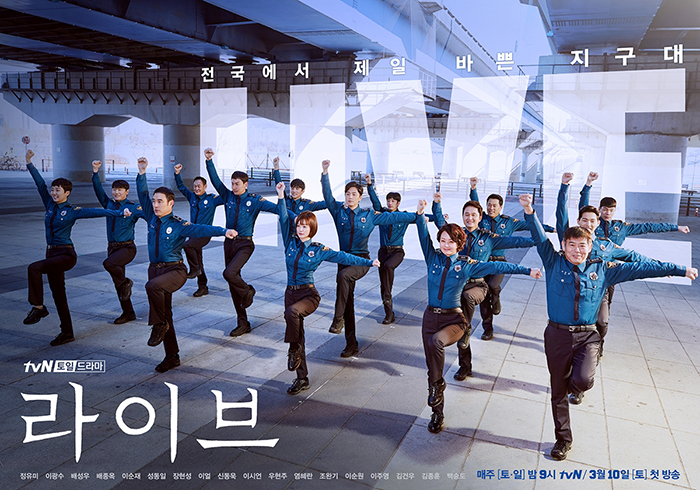

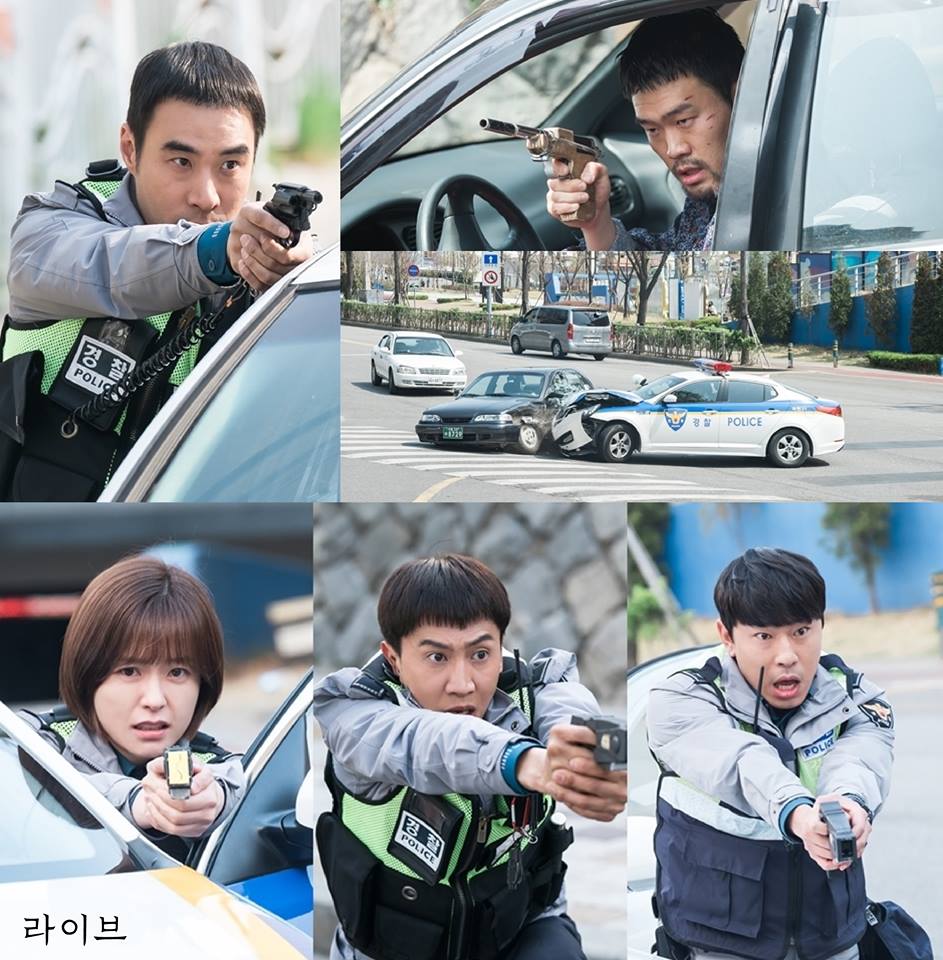

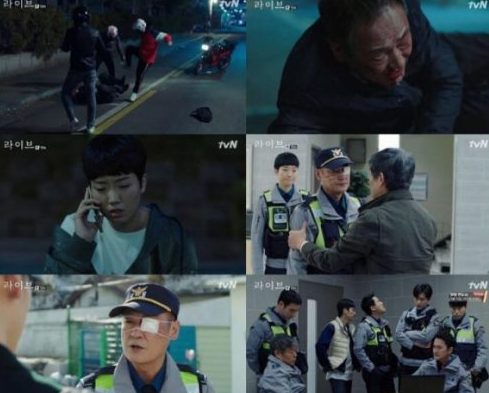

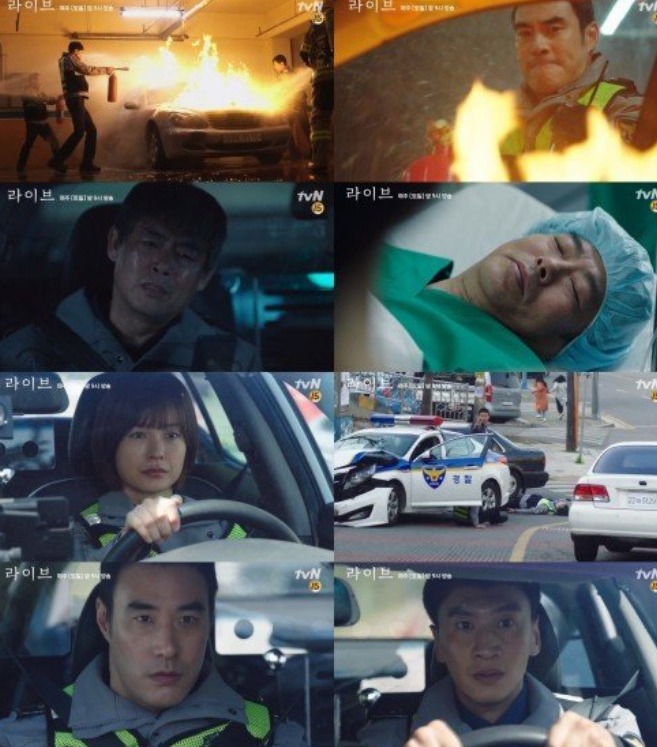

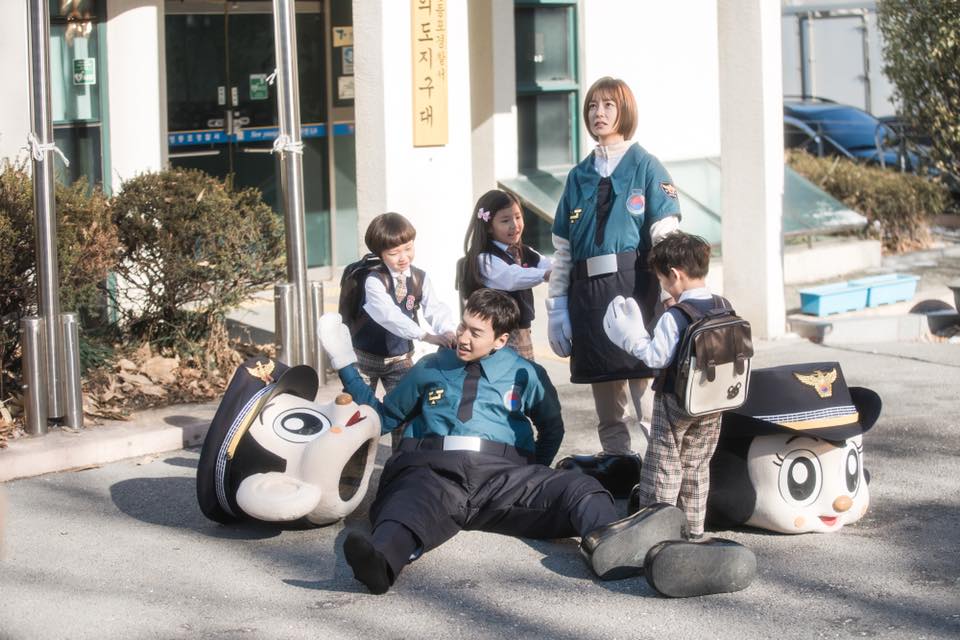

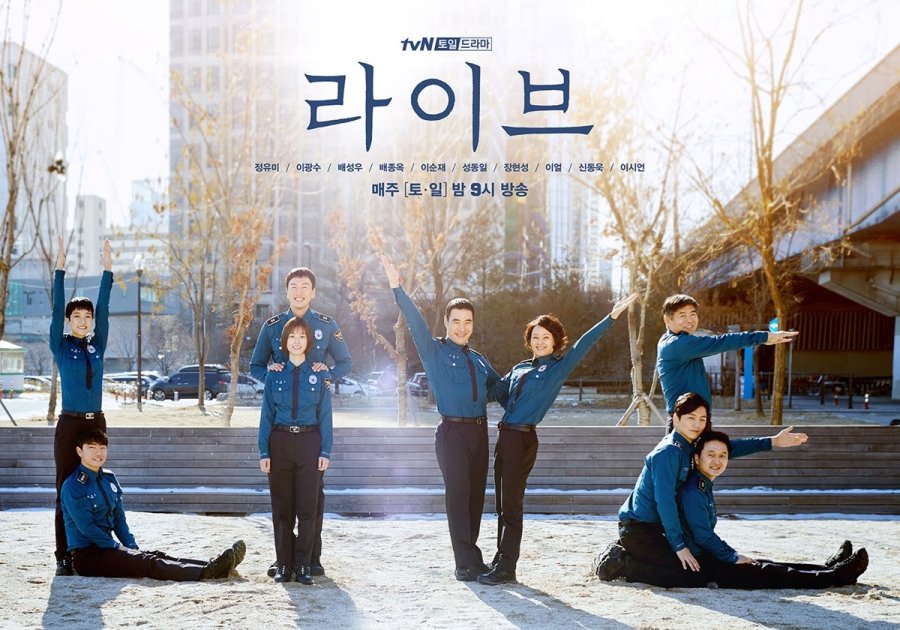
Comments